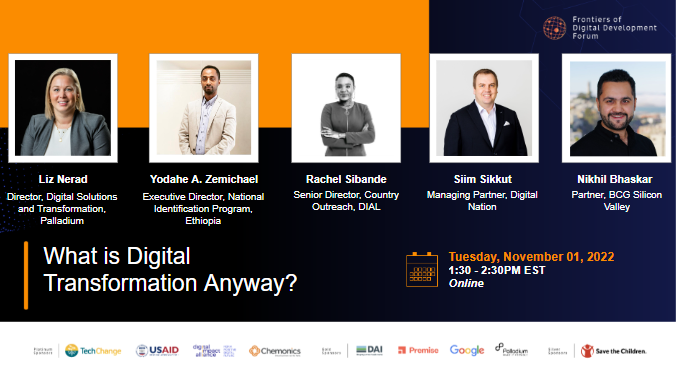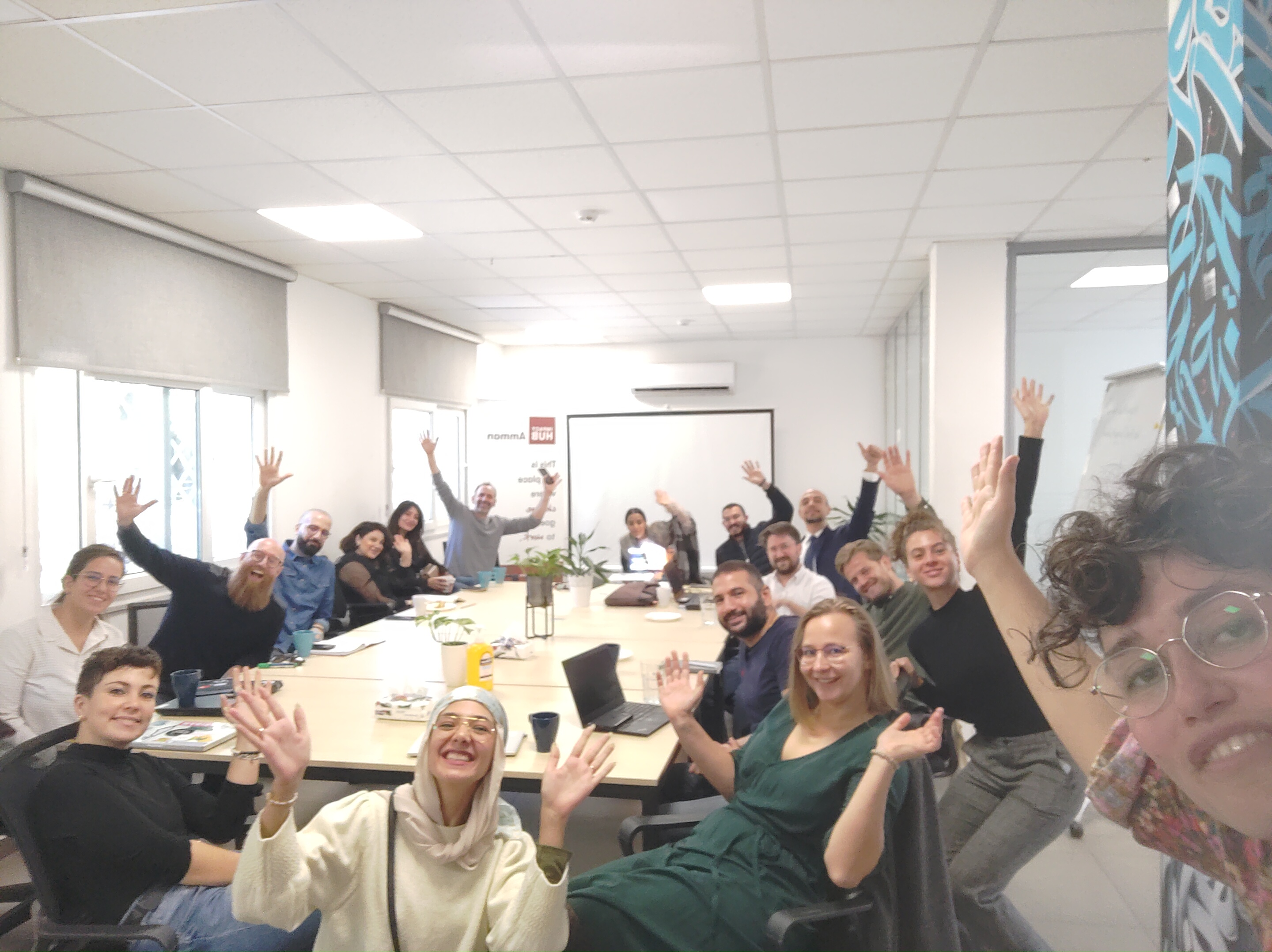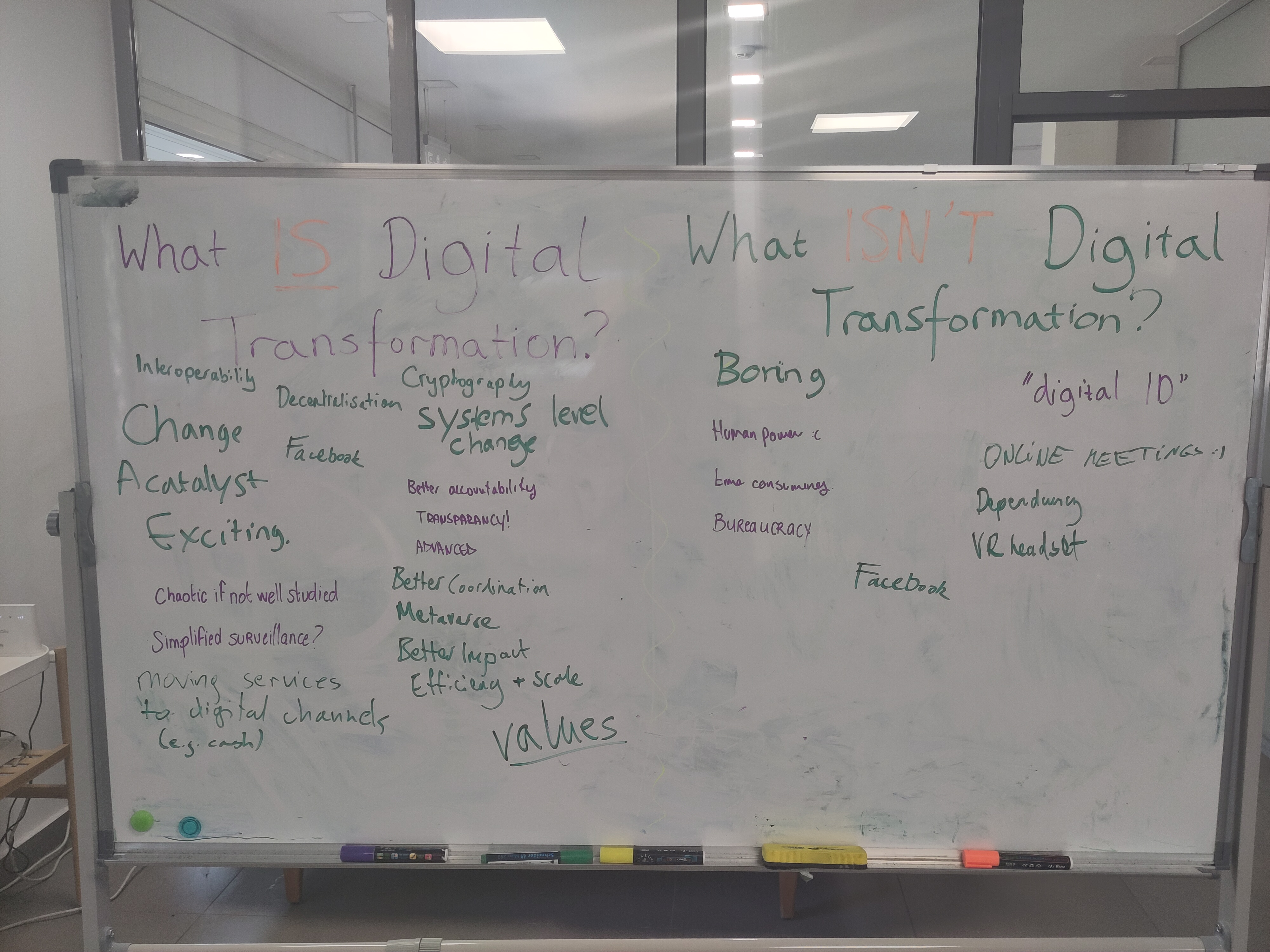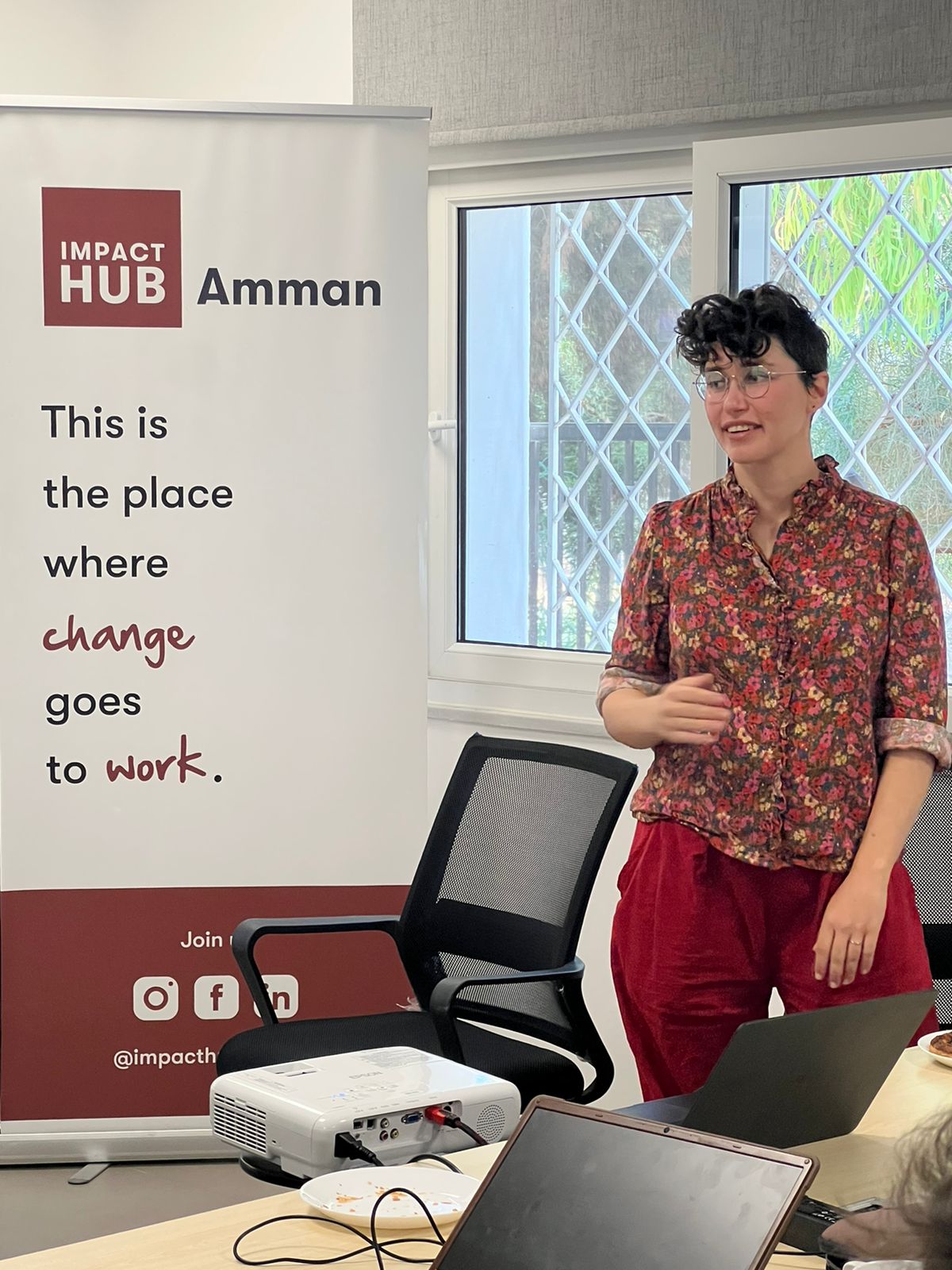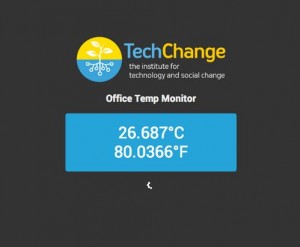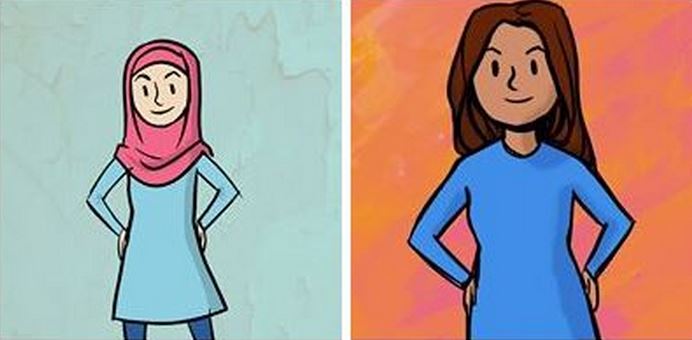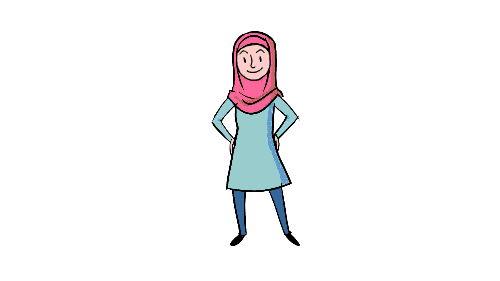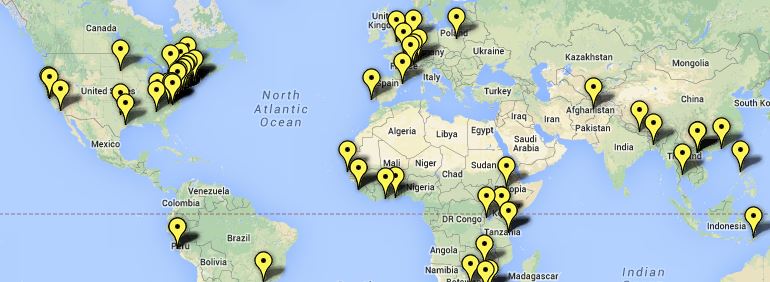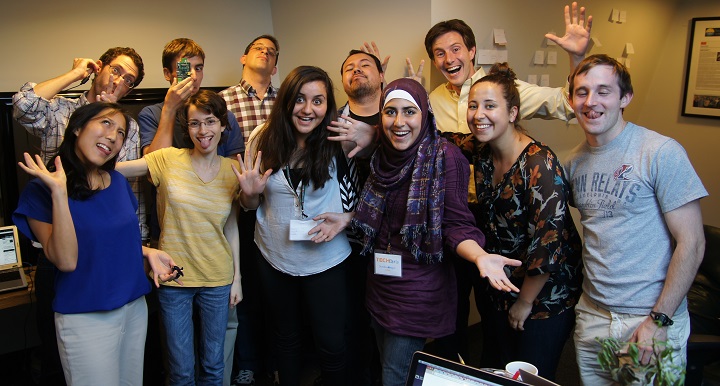By: Sacha Robehmed, FDDF Ambassador (Jordan), and Partner, Digital at Expectation State
With the new year often comes transformation. A calendar flips to a new page, resolutions are proclaimed, new habits get made. But transformation of the digital sort is more ongoing – perpetual, even.
Several weeks ago, TechChange and partners hosted the first-ever Frontiers of Digital Development Forum (FDDF), a two day hybrid conference to consider more aspirational technologies and their practical utility (or lack thereof) for large-scale humanitarian and development objectives. TechChange worked with Ambassadors to host watch parties in locations across the world–in Kenya, Jordan, Nigeria, Pakistan and Tanzania–to make the FDDF 2022 a truly hybrid experience and to ensure that conversations about digital development were happening in the places where digital development is taking place.
In the Jordanian capital, TechChange and Expectation State screened one of the flagship sessions, “What is Digital Transformation Anyway?” on the morning of November 2nd at Impact Hub Amman. A group of professionals whose work spans the humanitarian and development sectors, tech startup ecosystem, and digital rights, joined the breakfast event for a lively discussion. At Expectation State, as development practitioners living in the countries where we work, we believe that context is vitally important – which was underscored when a locally contextualised understanding of digital transformation came to the fore during the FDDF Amman discussion.
A decade ago, ‘digital transformation’ was the purview of government digital services in countries like the UK and Estonia. These models of digital transformation were held up as examples and shared with Majority World countries in a “top down”, often one-size-fits-all, way. But a decade on, and in our FDDF conversation we saw something quite different, showing how far ‘digital transformation’ has come. We covered everything from virtual reality and the metaverse, open source intelligence, humanitarian cash transfers, and education during COVID lockdowns. Compared to the ‘digital transformation’ of a decade ago, it was striking how rich, informed, and diverse the conversation in Amman was around digital transformation today – perhaps reflecting the diversity of views and understandings of digital transformation that we see from different countries across the digital development ecosystem. What emerged was an understanding of digital transformation unique to Jordan, and very much rooted in the context here.
We’d like to share four takeaways from the Amman discussion on digital transformation:
1. Education as a local example of COVID-19 digital transformation – that wasn’t inclusive
Undoubtedly, COVID-19 accelerated digital transformation globally. In the FDDF session, Rachel Sibande from the Digital Impact Alliance (DIAL) shared how countries with existing digital infrastructure were able to make faster payments during the COVID-19 lockdowns. In Jordan, the example of education shifting online was a key topic in our digital transformation discussion. With technology hardware not widespread, this example of digital transformation left people behind. While school classes were shown on TV to try to overcome the hardware gaps, in families with four of five children this wasn’t enough – how were they all meant to watch their classes at the same time on one device? While there were some initiatives giving laptops in an attempt to bridge the hardware gap, what about connectivity and data costs? In this very local example of digital transformation of education during the COVID-19 pandemic, despite best intentions the most vulnerable were not included.
2. Digital transformation has been called other names
Our discussion took on a historical perspective, reflecting on digital transformation as the most recent in a long series of buzzwords over the last two decades, which all have a similar meanings. From “e-government” and “going paperless,” to “smart organisations/smart cities” and “the fourth industrial revolution” – just how different is digital transformation anyway? We also reflected on the concerns around digital transformation historically, such as government workers fearing that computers would take their jobs when they were first introduced to ministries, but the efficiencies and advantages that digital transformation has created – we definitely don’t want to go back to the paper-based processes of the past. Looking at digital transformation from a historical perspective highlighted how far we’ve come, but also that many of the challenges and risks of new technologies are similar to those of past and present technologies.
3. Big tech giants – the view from Jordan
Meta and big tech giants featured heavily in our discussion. We talked about the power tech companies have, not only in our individual lives in terms of their data capture, but at a geopolitical level, such as the conflict around 5G technologies. The dominance of big tech in the future landscape was of particular concern, epitomised by the renaming of facebook to Meta as we move towards Web3 technologies and the metaverse. We talked about what the future might hold – if it was one where big tech grows increasingly powerful, or if the monopolies of big tech are broken up through regulation, and interoperability and decentralised alternatives emerging from outside the US will offer a different future. To what extent might digital transformation enable the building of digital products based on available talent and existing needs in Jordan, versus offering more regulatory space for big tech in the country?
4. Rights-based digital transformation means non-digital alternatives
As Jordan is host to the “second-highest share of refugees per capita” according to UNHCR, our understanding of digital transformation in Jordan was heavily informed by this. We talked about individuals being more or less vulnerable depending on their awareness of privacy and personal data protection. If individuals were unaware of their rights and just signed up to get a service, this wasn’t seen as meaningful digital transformation. Providing individuals with non-digital options in order to offer inclusive services, and to give the option to “opt-out” of digital services, was key to this rights-based approach to digital transformation offered by humanitarian actors during the discussion. At the same time, they acknowledged that digital has made changes for the better, for instance, increasing efficiency in cash distribution, compared to paper-based processes of the past. We also talked about power dynamics, identifying and mitigating risks of digital transformation, and discussed practical measures that should be taken such as identifying technology partners with similar values.
From a rights-based focus on digital transformation emerging from the high refugee (and humanitarian agency) presence, to the inclusiveness of digital transformation during COVID-19, the history of ‘digital transformation (by other names), and the dominance of US big tech in the Majority World; the Amman FDDF watch party had a rich and varied discussion about digital transformation. Which leaves us wondering – what might digital development actors elsewhere identify with and learn from our conversation? And what might we learn from similar discussions in Nairobi, Lagos, and in your city?
We’re looking forward to continuing these conversations at next year’s FDDF! In the meantime, please share your thoughts in the comments.

